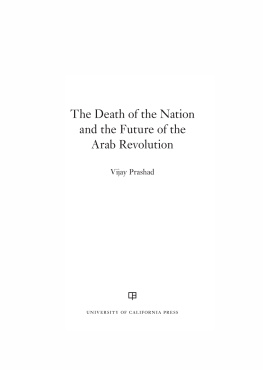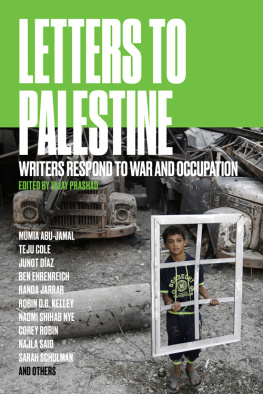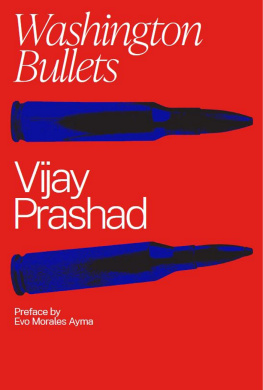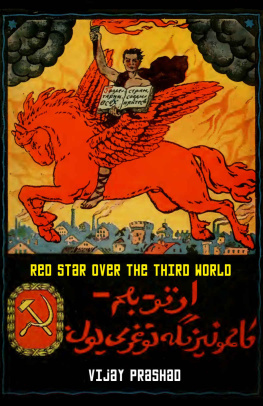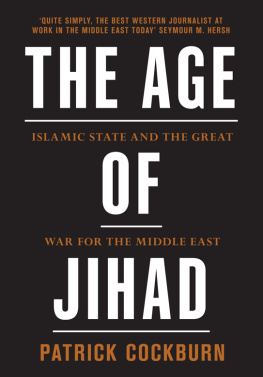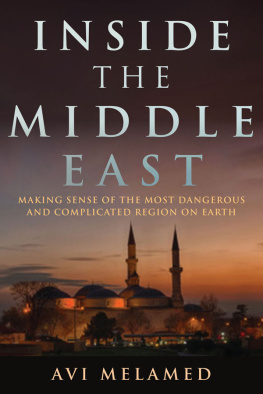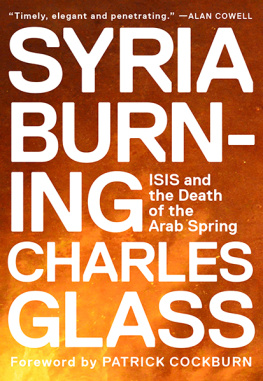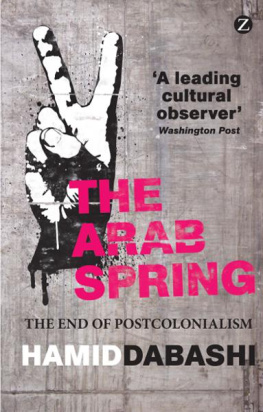INTRODUCTION
Abu Bakr al-Baghdadi welcomed Ramadan in 2014 by declaring the formation of the Caliphate, with him as the caliphnamely, the successor of the Prophet Mohammed. It is the first return of a caliphate since Kemal Atatrks Turkish National Assembly abolished it in 1924. Al-Baghdadi, the nom de guerre for the leader of the Islamic State of Iraq and al-Sham (ISIS), announced that borders inside the dar al-Islam, the world of Islam, are no longer applicable. He made this announcement because his fighters had taken large swathes of territory in northern Syria and in north-central Iraq, breathing down on Baghdad, the capital of the Abbasid Caliphate ( A.D. 7501258).
Al-Baghdadis declaration came after ISIS threatened to make its presence felt outside the territory it now controls. Bomb blasts in Beirut, Lebanon, hinted at ISISs reach. Jordanian authorities hastened to crack down on sleeper cells for ISIS as soon as chatter on social media suggested that there would be a push into Zarqa and Maan. Private Kuwaiti funding had helped ISIS in its early stages, but now Kuwait hinted that it, too, is worried that ISIS cells might strike the oil-rich emirate. When ISIS took the JordanSyria border posts, Saudi Arabia went into high alert.
Many of those associated with the rebellion in Syria had suggested that ISIS was egged on by the government of Bashar al-Assad to allow his preferred framing of the Syrian warthat his is a war against terrorism and not against a civic rebellion. While it is true that Assads government released a number of extremists in 2011, there is no evidence to suggest that he created ISIS. ISIS is a product of the U.S. war on Iraq, having been formed first as al-Qaeda in Iraq by the Jordanian militant Abu Musab al-Zarqawi. Deeply sectarian politicsnamely, an anti-Shia agendacharacterized al-Qaeda in this region. Funded by private Gulf Arab money, ISIS entered the Syrian war in 2012 as Jabhat al-Nusra (the Support Front). It certainly turned a civic rebellion into a terrorist war. Political support from the West and logistical support from Turkey and the Gulf Arab states allowed it to thrive in Syria. It became a hub for international extremism, with veterans from Afghanistan and Chechnya flocking to al-Baghdadis band of fellows. By 2014, ISIS held two major Iraqi cities (Ramadi and Fallujah) and two Syrian cities (Raqqa and Deir ez Zor). By the end of the year, ISIS would seize Mosulthe second major city in Iraq, and later Palmyra, a historical city on the fringe of the Syrian desert.
The West has been consistently naive in its public assessment of events in West Asia. The belief that the Arab Spring could be understood simply as a fight between freedom and tyrannyconcepts adopted from the Cold Warbefuddled the United States over Syria. There was a refusal to accept that the civic rebellion of 2011 had morphed quite decisively by late 2012 into a much more dangerous conflict, with the radical extremists in the ascendancy. It is of course true, as I saw in Syria firsthand, that the actual fighters in the extremist groups are a ragtag bunch with no special commitment to this or that ideology. They are anti-Assad, and they joined Jabhat al-Nusra or Ahrar ash-Sham because that was the group at hand with arms and logistical means. Jabhat al-Nusra is in the orbit of al-Qaeda, while Ahrar ash-Sham (Free Men of Syria)funded by Qatar and Turkeybears all the marks of extremism. Nevertheless, the fighters did fight for these groups, giving them the upper hand against the Wests preferred, but anemic, Free Syrian Army. ISISs breakthrough in Iraq has inspired some of these men to its formations in Syria. They wanted to be part of the excitement.
The Wests backing of the rebellion provided cover for Turkeys more enthusiastic approach to it. Intoxicated by the possibility of what Turkeys foreign minister, Ahmet Davutolu, favored as neo-Ottomanism, the Turkish government called for the removal of Assad and the emergence of a pro-Istanbul government in Damascus. Turkey opened its borders to the rat line of international extremism, with planeloads of fighters from Chechnya, Libya, and Tunisia flying into Turkey to cross into Syria to fight for ISIS and its offshoots. ISIS spat in Turkeys salt. ISIS struck Turkey in 2013 with car bombs and abductions, suggesting to Ankara that its policy has endangered its citizens. In March 2014, the governor of Hatay Province, Celattin Lekesiz, called upon the government to create a new policy to prevent the illegal crossing of militants to Syria. It was met with silence.
An ISIS billboard in Mosul depicts the flags of the states in the region. All are crossed out as being traitorous regimes. Only the ISIS black flag stands as a sentinel for justice. Among the regimes to be overthrown is the Kingdom of Saudi Arabia. Saudi Arabia has used its vast wealth to influence the region, and to outsource its own problems with extremism. In 1962, the kingdom created the World Muslim League as an instrument against secular Arab nationalism and Communism. Twenty years later, the war in Afghanistan provided the opportunity for the kingdom to export its own disaffected youth (including Osama bin Laden) to fight the Afghan Communists rather than its own royal family. The 1979 takeover of the Mecca mosque by extremists was an indication of the threat of such youth. Saudi policy, however, did not save the kingdom. Al-Qaeda, the product of this policy, threatened and attacked the kingdom. But few lessons were learned.
Saudi policy vis--vis Syria and Iraq repeats the Afghan story. Funds and political support for extremists in the region came from the kingdom and its Gulf allies. Saudi Arabia tried to stop its youth from going to these warsa perilous mistake that it had made with Afghanistan. It was too late. They had already encouraged chaoswhether in Iraq, Syria, or Egypt, the latter poisoned by harsh repression after the promise of the Tahrir uprising. The Arab world, flush with hope in 2011, is now drowning in a counterrevolution financed by petrodollars. Saudi Arabias response to the rise of ISIS is disingenuous. The kingdom feigns outrage, tells the Iraqis that it does not want to get involved, says that it wants to raise an army to fight in Syria. We are asked what can be done, wrote its ambassador to the United Kingdom, Prince Mohammed bin Nawaf. At the moment, we wait, we watch and we pray. The fact is that both the West and the Gulf Arabs are doing more. They finance the extremist rebels in Syria, and they see the Assad government as an obstacle to peace in the region. Both the West and the Gulf Arabs suggest that the terrorism that they dislike against themselves is acceptable for others. The history of their policies also suggests that Western and Gulf Arab intervention leads inexorably to the creation of police states (as in Egypt) and terrorist emirates. A lack of basic commitment to peoples movementsanchored in unions and in civic groupswill always lead to such diabolical outcomes.

